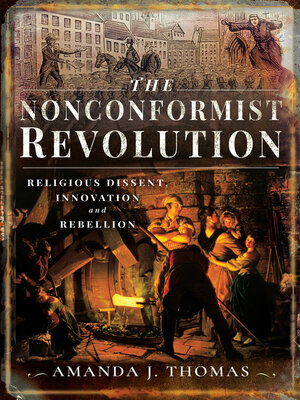
Sign up to save your library
With an OverDrive account, you can save your favorite libraries for at-a-glance information about availability. Find out more about OverDrive accounts.
Find this title in Libby, the library reading app by OverDrive.



Search for a digital library with this title
Title found at these libraries:
| Library Name | Distance |
|---|---|
| Loading... |
A historian examines the evolution of dissenting thought and how it shaped the transformation of England from a rural to an urban, industrialized society.
The foundations for the Industrial Revolution were in place from the late Middle Ages, when the early development of manufacturing processes and changes in the structure of rural communities began to provide opportunities for economic and social advancement. Successive waves of Huguenot migrants and the influence of Northern European religious ideology also played an important role in this process. The Civil Wars would provide a catalyst for the dissemination of new ideas and help shape the emergence of a new English Protestantism and divergent dissident sects. The persecution that followed strengthened the Nonconformist cause, and for the early Quakers it intensified their unity and resilience—qualities that would prove to be invaluable for business.
The book proceeds to explore how in the years following the Restoration, Nonconformist ideas fueled enlightened thought, creating an environment for enterprise but also a desire for more radical change, how reformers seized on the plight of a working poor alienated by innovation and frustrated by false promises—and how the vision which was at first the spark for innovation would ignite revolution.
The foundations for the Industrial Revolution were in place from the late Middle Ages, when the early development of manufacturing processes and changes in the structure of rural communities began to provide opportunities for economic and social advancement. Successive waves of Huguenot migrants and the influence of Northern European religious ideology also played an important role in this process. The Civil Wars would provide a catalyst for the dissemination of new ideas and help shape the emergence of a new English Protestantism and divergent dissident sects. The persecution that followed strengthened the Nonconformist cause, and for the early Quakers it intensified their unity and resilience—qualities that would prove to be invaluable for business.
The book proceeds to explore how in the years following the Restoration, Nonconformist ideas fueled enlightened thought, creating an environment for enterprise but also a desire for more radical change, how reformers seized on the plight of a working poor alienated by innovation and frustrated by false promises—and how the vision which was at first the spark for innovation would ignite revolution.







